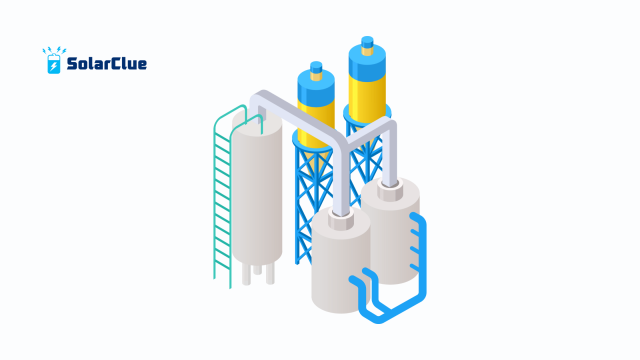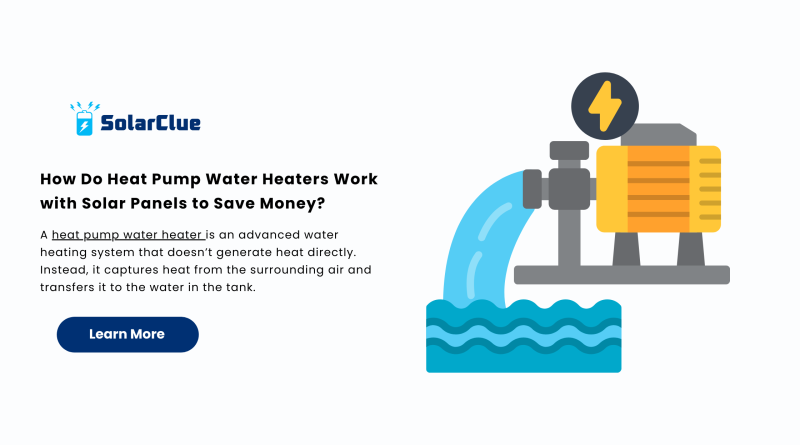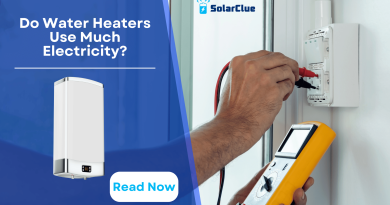How Do Heat Pump Water Heaters Work with Solar Panels to Save Money?
With energy prices climbing and environmental concerns becoming more urgent, homeowners are turning to smart, sustainable solutions. One of the most effective and eco-friendly combinations available today is pairing a heat pump water heater with solar panels. This duo can dramatically reduce your electricity bills and environmental footprint. But how does it actually work? Let’s dive into how these technologies team up to deliver maximum savings and efficiency.
Table of Contents
- 1 What is a Heat Pump Water Heater?
- 2 How Do Solar Panels Work?
- 3 Why Combine Heat Pump Water Heaters and Solar Panels?
- 4 Benefits of Heat Pump Water Heater Solar Systems
- 5 How the System Works Together
- 6 Difference Between Solar Water Heater and Heat Pump Water Heater Solar
- 7 Best Climate Conditions
- 8 What to Consider Before Installing
- 9 Maintenance Tips
- 10 Cost and Return on Investment (ROI)
- 11 Incentives and Rebates
- 12 Environmental Impact
- 13 Smart Energy Integrations
- 14 Why This Combo Outperforms Traditional Water Heaters
- 15 Conclusion
- 16 FAQs
What is a Heat Pump Water Heater?
A heat pump water heater is an advanced water heating system that doesn’t generate heat directly. Instead, it captures heat from the surrounding air and transfers it to the water in the tank. This process is significantly more efficient than traditional water heaters that rely on electricity or gas to create heat. In fact, heat pump systems use up to 70% less energy, making them one of the smartest choices for modern homes.
How Do Solar Panels Work?
Solar panels use photovoltaic (PV) cells to absorb sunlight and convert it into electricity. This electricity can be used to power various appliances in your home — including your heat pump water heater. Solar energy is clean, renewable, and reduces reliance on the grid, especially when combined with energy-efficient systems.
Why Combine Heat Pump Water Heaters and Solar Panels?
When you combine a heat pump water heater with solar panels, you’re creating a powerful system that maximizes efficiency. During the day, solar panels produce electricity that can directly power the heat pump, drastically cutting your energy costs. This setup minimizes grid reliance and ensures that you have hot water available day and night, with minimal environmental impact.
Benefits of Heat Pump Water Heater Solar Systems

1. Huge Energy Savings
Using solar energy to operate a heat pump can slash your water heating costs by up to 70–80% annually. This is particularly beneficial for families or large households with high hot water demand.
2. Eco-Friendly
Both solar panels and heat pump water heaters are clean energy technologies. When combined, they drastically lower your home’s greenhouse gas emissions.
3. Lower Utility Bills
With solar-generated electricity powering your water heater, you’ll notice significant reductions in your electricity bills — often starting from the very first month.
4. Long-Term Financial Benefits
Though the initial setup may require investment, you’ll recoup the cost within 3–6 years through monthly savings and available government incentives.
How the System Works Together
Step 1: Solar Electricity Generation
During the day, your solar panels generate electricity from sunlight.
Step 2: Heat Pump Operation
That solar power is used to operate your heat pump water heater, transferring heat from the air to the water in the tank.
Step 3: Water Storage
The heated water is stored in an insulated tank, ready for use when you need it — even at night or during cloudy days.
Step 4: Grid Backup
If solar output is low, the system switches to grid electricity. But because the heat pump is so efficient, energy consumption remains minimal.
Difference Between Solar Water Heater and Heat Pump Water Heater Solar
A solar water heater uses the sun’s thermal energy to heat water directly. In contrast, a heat pump water heater solar system uses solar panels to generate electricity, which powers the heat pump. This combination offers more flexibility and higher year-round performance, especially in variable climates.
Best Climate Conditions
Heat pump water heaters work best in warm or moderate climates due to their dependence on ambient air. However, modern systems with backup features perform well in colder regions too. Meanwhile, solar panels are effective in most regions, especially when placed correctly to capture optimal sunlight.
What to Consider Before Installing
-
Make sure you have proper ventilation for the heat pump system.
-
Position your solar panels to maximize sun exposure — typically facing south.
-
Choose a water tank size that matches your household’s hot water needs.
-
Look into smart energy systems that optimize when your water is heated based on solar availability.
Maintenance Tips
To ensure long-term performance:
-
Clean solar panels monthly to remove dust and debris.
-
Inspect heat pump filters and fans every six months.
-
Schedule annual maintenance checks for both systems.
Cost and Return on Investment (ROI)
The cost of a full heat pump water heater solar setup can range from ₹2.5 to ₹5 lakhs (or $3,000 to $6,000 USD), depending on the system size and brand. However, considering monthly energy savings and government rebates, most homeowners recover the cost in 3 to 6 years.
Incentives and Rebates
Governments and local bodies often offer tax credits, cash rebates, or financing options for installing solar panels and heat pump water heaters. Check your eligibility at solarclue.com to make the most of these benefits.
Environmental Impact
Switching to a heat pump water heater powered by solar panels is one of the most impactful ways to reduce your carbon footprint. These technologies produce zero direct emissions and contribute to a cleaner planet.
Smart Energy Integrations
Integrate your system with smart thermostats and energy monitors. These tools allow you to schedule water heating during peak solar hours, boosting savings even further.
Why This Combo Outperforms Traditional Water Heaters
Conventional water heaters rely on inefficient and carbon-heavy energy sources. A heat pump water heater solar combo offers superior energy savings, fewer emissions, and long-term cost-effectiveness.
Conclusion
Pairing a heat pump water heater with solar panels is a win-win for your wallet and the environment. You’ll reduce utility bills, enhance energy efficiency, and live more sustainably. If you’re considering a home upgrade, this combination should be at the top of your list.
For expert advice and more information, visit blog.solarclue.com today and take the next step toward a cleaner, smarter home.
FAQs
1. Can I add a heat pump water heater to my existing solar system?
Yes! Most heat pump systems are compatible with existing solar panels.
2. How long do heat pump water heaters last?
Typically, 10–15 years with regular maintenance.
3. Are they worth the investment?
Absolutely. Between energy savings and rebates, the system pays for itself.
4. Do I need a lot of solar panels?
Not necessarily. A small to mid-sized system can power your heat pump water heater efficiently.
5. When will I start saving money?
Most people notice lower bills within the first year, with full ROI in 3–6 years.
Want to make your home smarter and greener? Explore more at solarclue.com and start your solar-powered journey today!



